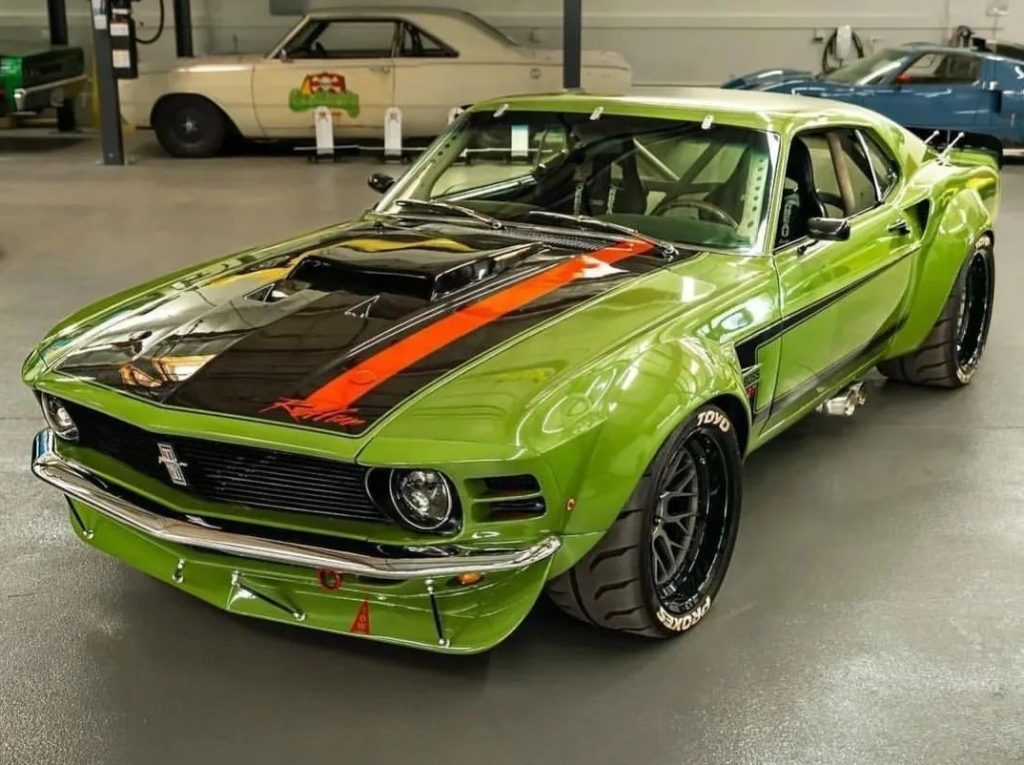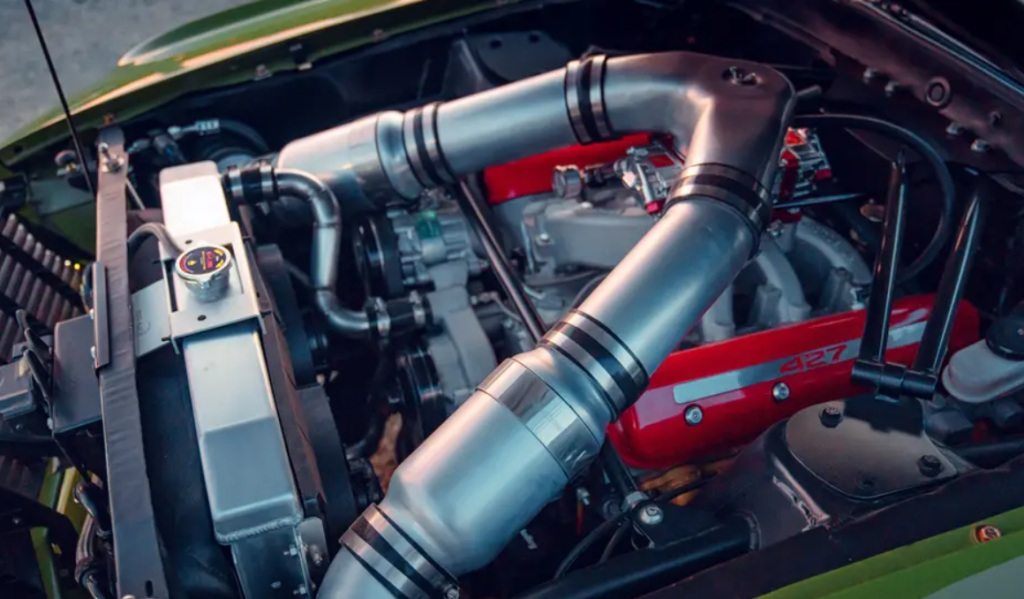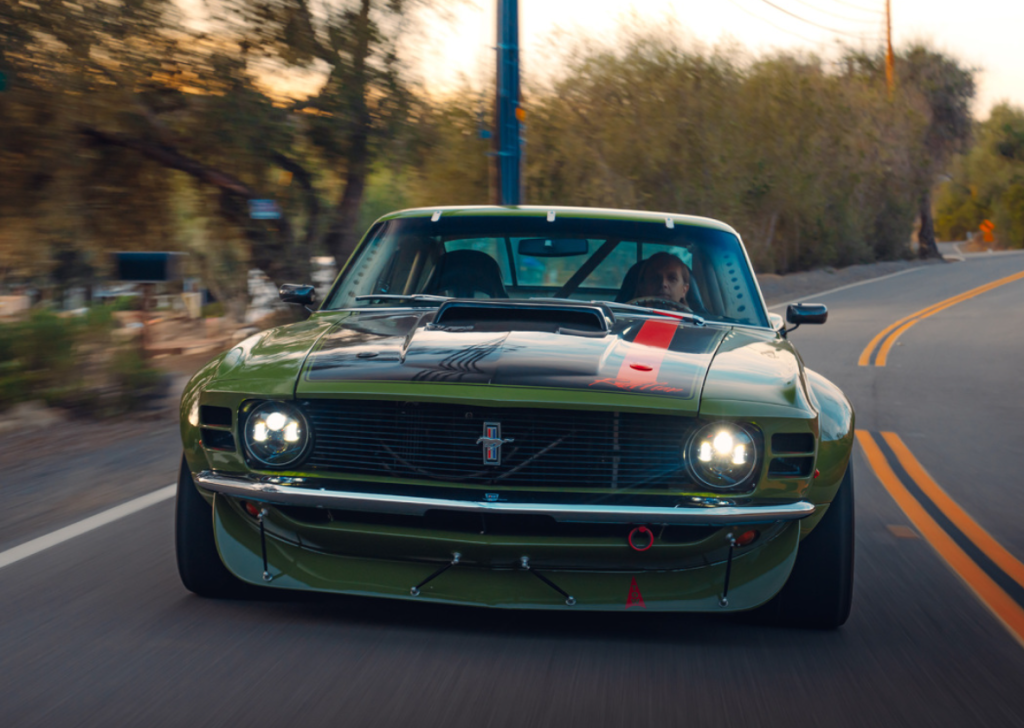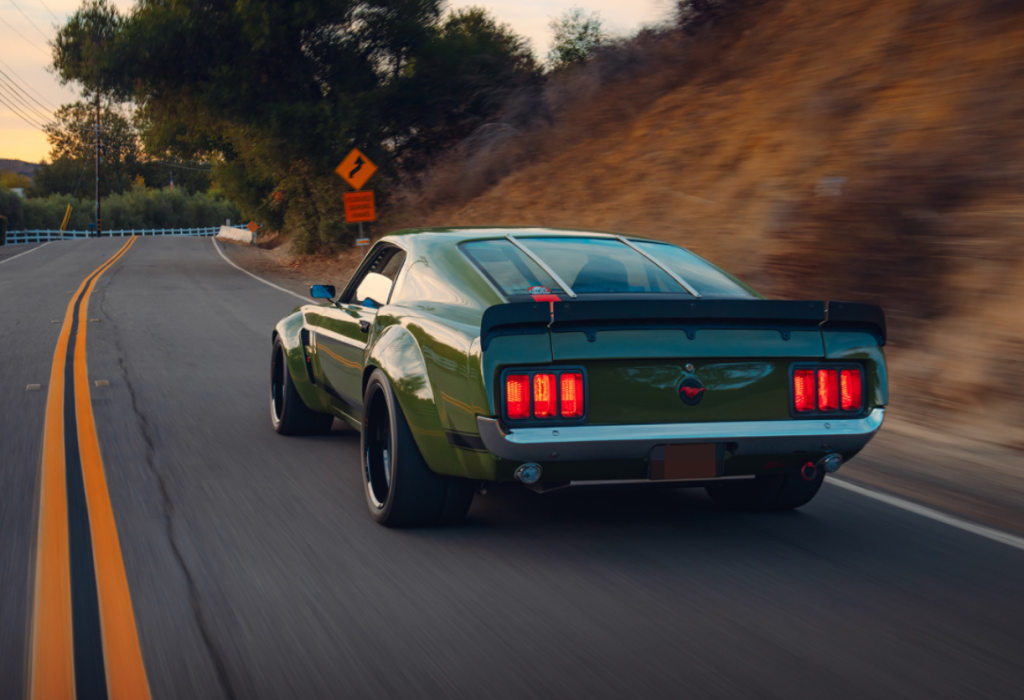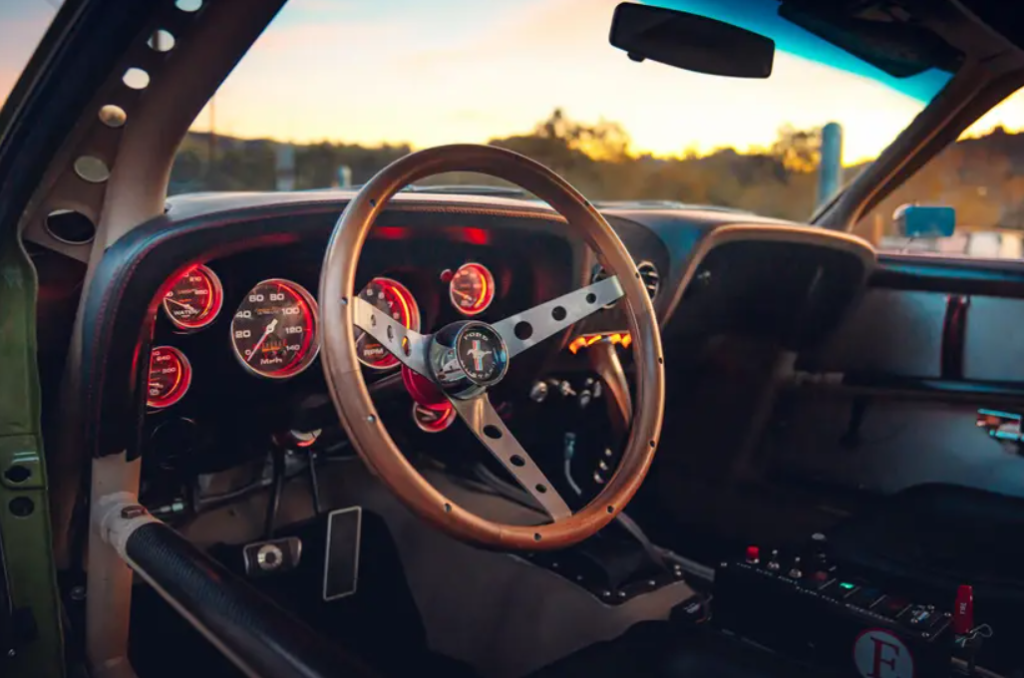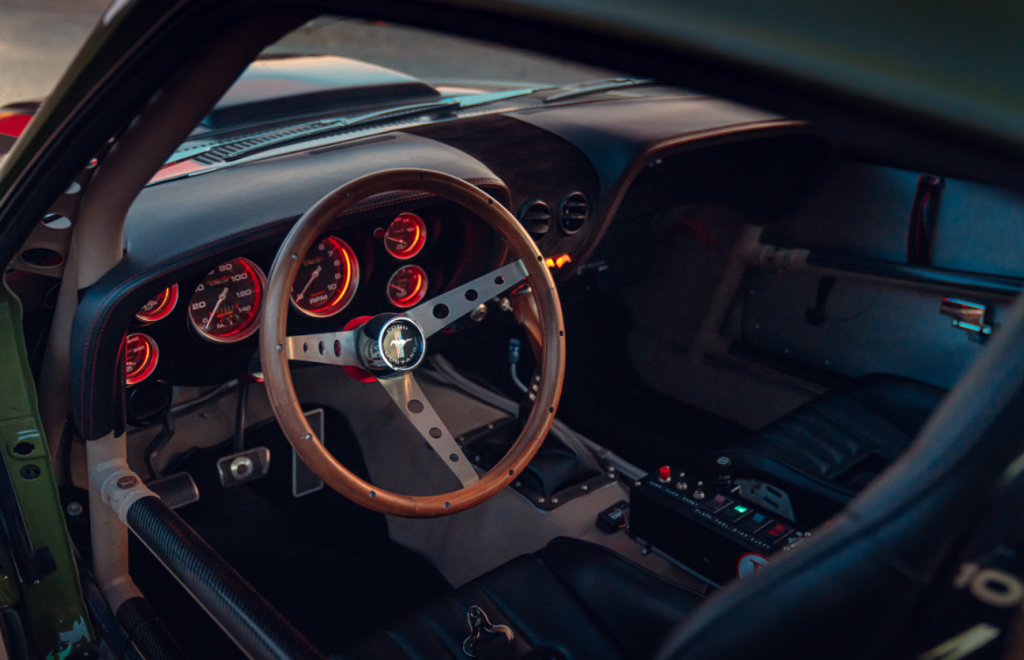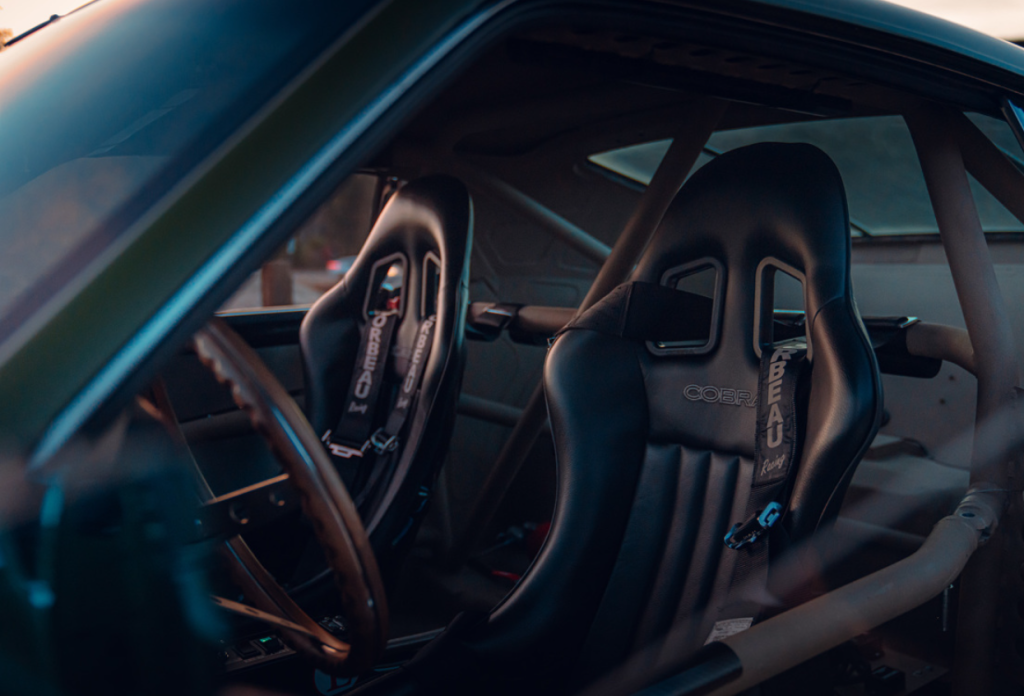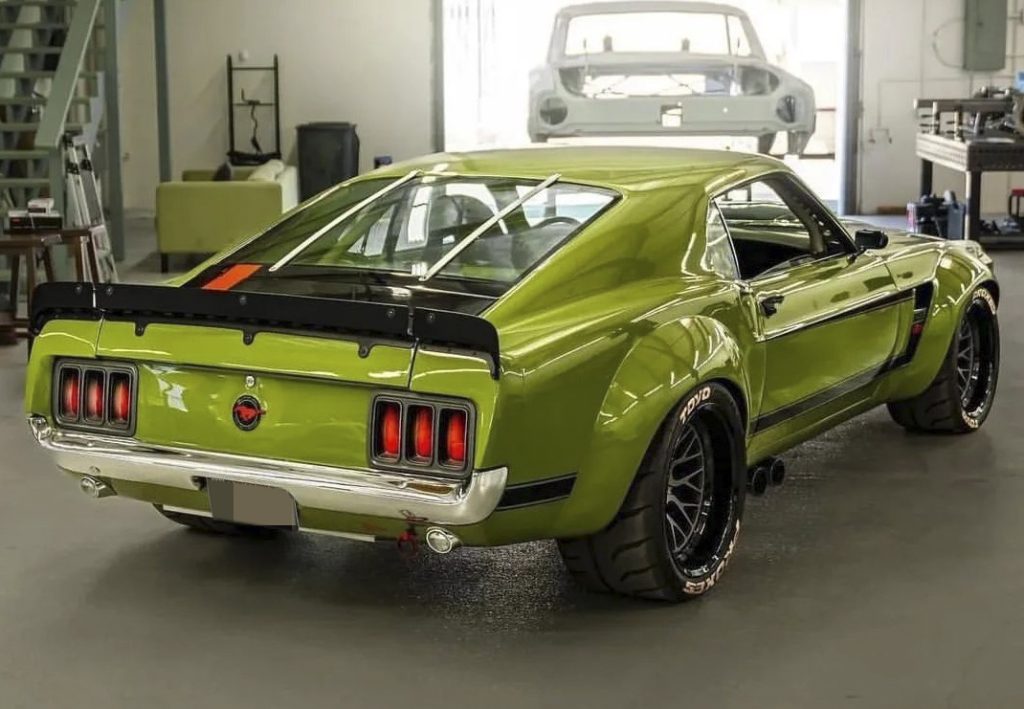In the automotive world, few names evoke as much reverence and admiration as the Ford Mustang. Since its debut in 1964, the Mustang has become a symbol of American muscle, speed, and style. One particular model from the early ’70s stands out as a legendary icon of that era – the 1970 Boss 427 Ruffian Mustang. This fearsome machine captured the hearts of car enthusiasts and racers alike, leaving an indelible mark on automotive history. In this article, we will delve into the captivating story of this powerful beast and explore why it remains an enduring symbol of raw power and engineering excellence.
The Birth of the Boss 427 Ruffian Mustang
The inception of the Boss 427 Ruffian Mustang was the brainchild of Ford’s performance division, known as “Special Vehicle Operations” (SVO), led by the renowned engineer Larry Shinoda. The car’s primary purpose was to compete in the fiercely competitive and exhilarating world of Trans-Am racing. To achieve this, the designers and engineers had to create a machine that would not only perform exceptionally well on the track but would also be street-legal, adhering to the muscle car ethos.
Engine and Performance
At the heart of the Boss 427 Ruffian Mustang lay its most defining feature – a mighty 7.0-liter V8 engine. With an impressive displacement and a high-performance camshaft, this engine generated a jaw-dropping 450 horsepower and 520 lb-ft of torque. The sheer force of this engine allowed the car to sprint from 0 to 60 mph in under 5 seconds, an astounding feat for its time. Ford coupled this powerhouse with a close-ratio four-speed manual transmission, ensuring that drivers could fully exploit the car’s raw power and precision on both the street and the track.
Exterior Design and Aerodynamics
The exterior of the 1970 Boss 427 Ruffian Mustang exuded a sense of purpose and aggression. Its sleek and muscular lines were adorned with bold racing stripes, making it an unmistakable presence on the road. The front end featured a distinctive shark-like grille and a protruding front spoiler, aiding in aerodynamics and enhancing downforce at high speeds. The rear spoiler, along with a functional hood scoop, contributed to the car’s stability and performance, making it a formidable contender on the race track.
Interior and Racing Heritage
Stepping inside the Boss 427 Ruffian Mustang, the cabin exuded a sense of driver-centric focus. Bucket seats, a sporty steering wheel, and a center console designed for easy gear changes all emphasized the car’s racing pedigree. Despite its track-oriented design, the car retained some creature comforts, such as air conditioning and an AM/FM radio, which appealed to enthusiasts who desired a balance between performance and daily driving.
Racing Legacy and Influence
The 1970 Boss 427 Ruffian Mustang made a remarkable impact on the racing circuit, earning its place in the Trans-Am series. Its dominance on the track showcased its prowess as a performance machine. Moreover, the car’s influence extended beyond its racing achievements. The Boss 427 Ruffian Mustang helped shape the perception of American muscle cars, proving that they could be both intimidatingly powerful and skillfully engineered.
Legacy and Collectibility
As the years passed, the 1970 Boss 427 Ruffian Mustang became a rare and coveted gem among car collectors and enthusiasts. Its limited production run and historical significance propelled its status to that of a highly sought-after collector’s item. Owning a well-maintained and authentic Ruffian Mustang became a symbol of prestige and passion for vintage muscle cars.
The 1970 Boss 427 Ruffian Mustang stands as a testament to the golden era of American muscle cars, embodying the spirit of raw power, innovation, and performance. Its racing heritage, unmatched powertrain, and iconic design make it a timeless classic in the automotive world. Decades after its debut, the Ruffian Mustang continues to captivate enthusiasts and reminds us of a time when muscle cars ruled the roads and tracks, leaving an enduring legacy in the hearts of automotive enthusiasts worldwide.

